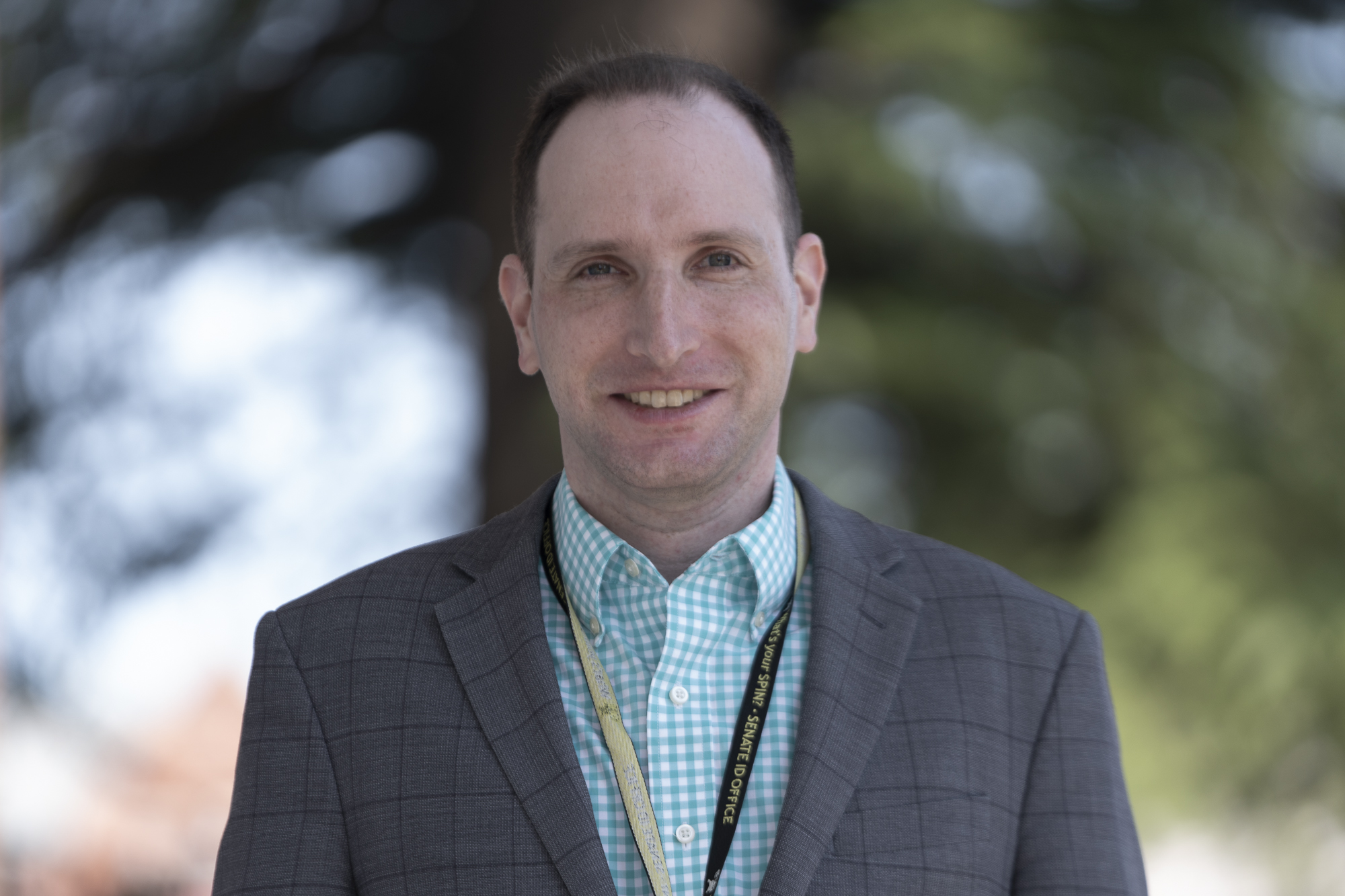Glenn Kurtz’ ‘Three Minutes in Poland’ brings back memories and tears
New Yorker Glenn Kurtz’ discovery of an old 16mm film buried in the closet of his parents’ Florida home led him on a life-changing journey that he shared to about 250 people crammed into a small chapel at Beth-El Congregation in Northwest Baltimore on Monday evening.
Kurtz wrote Three Minutes in Poland: Discovering a Lost World in a 1938 Family Film based on the film he found in that closet. The book illustrates the history of Kurtz’ family, and a community marked for destruction. Kurtz’ Polish-born grandfather shot the film on a sightseeing trip in Europe – one year before the Nazi invasion of Poland. The film included Paris footage and the Swiss Alps, but amazingly also footage of the only known moving images of the thriving Jewish town of Nasielsk, Poland, where children can be seen leaving a synagogue and joyfully playing in the streets.
 Kurtz knew the brief footage was a important historical link about Nasielsk, which is located about 35 miles northwest of Warsaw. It had a pre-war population of 4,500- of whom 3,000 were Jewish. Fewer than 100 of these 3,000 Jews survived the World War II.
Kurtz knew the brief footage was a important historical link about Nasielsk, which is located about 35 miles northwest of Warsaw. It had a pre-war population of 4,500- of whom 3,000 were Jewish. Fewer than 100 of these 3,000 Jews survived the World War II.
Kurtz recently returned from a trip to Poland where he visited Nasielsk and spoke to local high school students about the Jewish history of their town, and the grandfather whom he was never fortunate enough to meet.
“I embarked on the project to see what remained of this town and what could be learned from the extraordinarily detailed evidence of my grandfather’s film,” Kurtz said. “In the long run, I hope to assemble as many remaining fragments as possible–stories, photographs, letters, artifacts–to preserve the memory of the town as a living place, not just a place of loss and death.”
Upon discovering the film in 2009, he donated it to the U.S. Holocaust Memorial Museum’s Steven Spielberg Film and Video Archive. Leslie Swift, now chief of the Film and Video Archive, sent it to Color Lab Corp, a film laboratory in Rockville, MD, for restoration.
Speaking in a soft but clear voice with Swift sitting by his side, Kurtz described how he spent four years searching for clues that could help him identify the people in the film, and possibly locate any survivors.
Then he caught a break in 2011.
Kurtz received an email from Marcy Rosen of Detroit, Michigan. Rosen had seen the film on the Internet, and spotted a 13-year-old boy she immediately recognized as her grandfather Maurice Chandler.
Chandler, 89, and a resident of Boca Raton survived the war posing as a Polish farmhand via false identity papers. Kurtz said Chandler told him, “You’ve given me my childhood back,” after viewing the film with Rosen and the rest of their family.
Many in the audience were in tears after hearing the author tell the story and for some it brought back painful memories.
Martha Weiman was born in Bocholt, Germany, a small town on the Dutch border. Seventy-six years later, she still remembers Kristallnacht: “The synagogue opposite our house was looted and I, along with two older brothers, peered out the window witnessing the burning of Torahs and prayer books,” Weiman said. “On that night 91 Jews were killed, 30,000 Jewish men were arrested and sent to concentration camps, my father among them.”
Her father would return home two months later, badly beaten and in poor health. A month later Weiman and her family left Germany with only one suitcase per person and 10 marks.
A former president of the Baltimore Jewish Council and Chair of the Inter-Ethnic Commission, Weiman also serves on the Holocaust Remembrance & Education Commission.
She described her involvement in these activities as “giving back to a community” that reached out to her family when she first arrived in Baltimore.
Many other refugees and survivors also were present in the audience, and Three Minutes in Poland proved to be a catalyst for dialogue and thoughtful conversation.
But for Kurtz the journey is far from over. He continues to travel throughout the U.S speaking to Jewish audiences while promoting his book making sure that history doesn’t get lost again.

Bryan is the managing editor of Baltimore Post-Examiner.
He is an award-winning political journalist who has extensive experience covering Congress and Maryland state government. His work includes coverage of the first election of President Donald Trump, the confirmation hearings of Supreme Court Justice Brett Kavanaugh and attorneys general William Barr and Jeff Sessions, the Maryland General Assembly, Gov. Larry Hogan, and the COVID-19 pandemic.
Bryan has broken stories involving athletic and sexual assault scandals with the Baltimore Post-Examiner.
His original UMBC investigation gained international attention, was featured in People Magazine and he was interviewed by ABC’s “Good Morning America” and local radio stations. Bryan broke subsequent stories documenting UMBC’s omission of a sexual assault on their daily crime log and a federal investigation related to the university’s handling of an alleged sexual assault.
